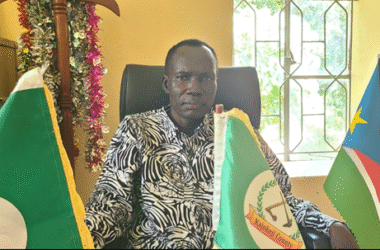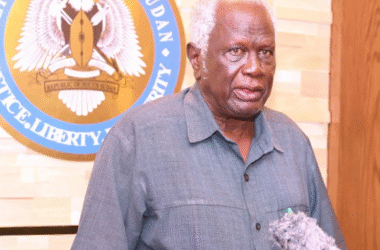By Ephraim Modi D.S
Authorities of Juba City Council in Central Equatoria State have vowed to bridge the gap of unemployment in the city through creating more employment opportunities to the redundant young South Sudanese by ensuring that most businesses in the country are operated by the citizens.
The pledge to bring hopes to the unemployed nationals in the city especially the youth was declared by the Deputy Mayor of Juba City Council Thiik Thiik on Friday during the opening ceremony of a vehicles bond in Juba.
Addressing members at the launch event, Juba City Council Deputy Mayor Thiik Thiik emphasized on the city council’s commitment to close the gap of unemployment of the citizens to ensure that they run the economy.
“We are going to see into it that all hotels, all the diplomatic missions and the organizations which are in Juba here [to see into it that] all the people, the drivers, the cooks and each and every one also being the office managers, [we are going to see into it that] they must be South Sudanese,” he stressed.
He however, urged the South Sudanese to be wiser enough to be able to choose between the bad and the good for themselves.
He also appealed to the Transitional National Government to mandate Juba City Council to operate their plans at their capacity to render the needs to the people in the country.
“In the long-term, the South Sudan unemployment rate is projected to trend around 12.30 percent in 2022 and 12.00 percent in 2023, according to our econometric models” he noted.
The rate of unemployment in South Sudan since 2011 has been growing in a geometric progression. Its source could be traced to the diversification of the country’s economy into oil sector, agriculture, construction etc that provides less employment opportunity to its labor force.
South Sudan total number of graduates from the last grade of primary education, regardless of age, expressed as a percentage of the population at the theoretical graduation age. The ratio can exceed 100 percent due to over-aged and under-aged children who enter primary school for the first time early/late or/and repeat a grade.
Gross graduation ratio, in South Sudan was reported at 30.38 percent in 2015, according to the World Bank collection of development indicators, compiled from officially recognized sources. South Sudan- Primary completion rate, total, based on completers, actual values, historical data, forecasts and projections were sourced from the World Bank on June of 2022.


